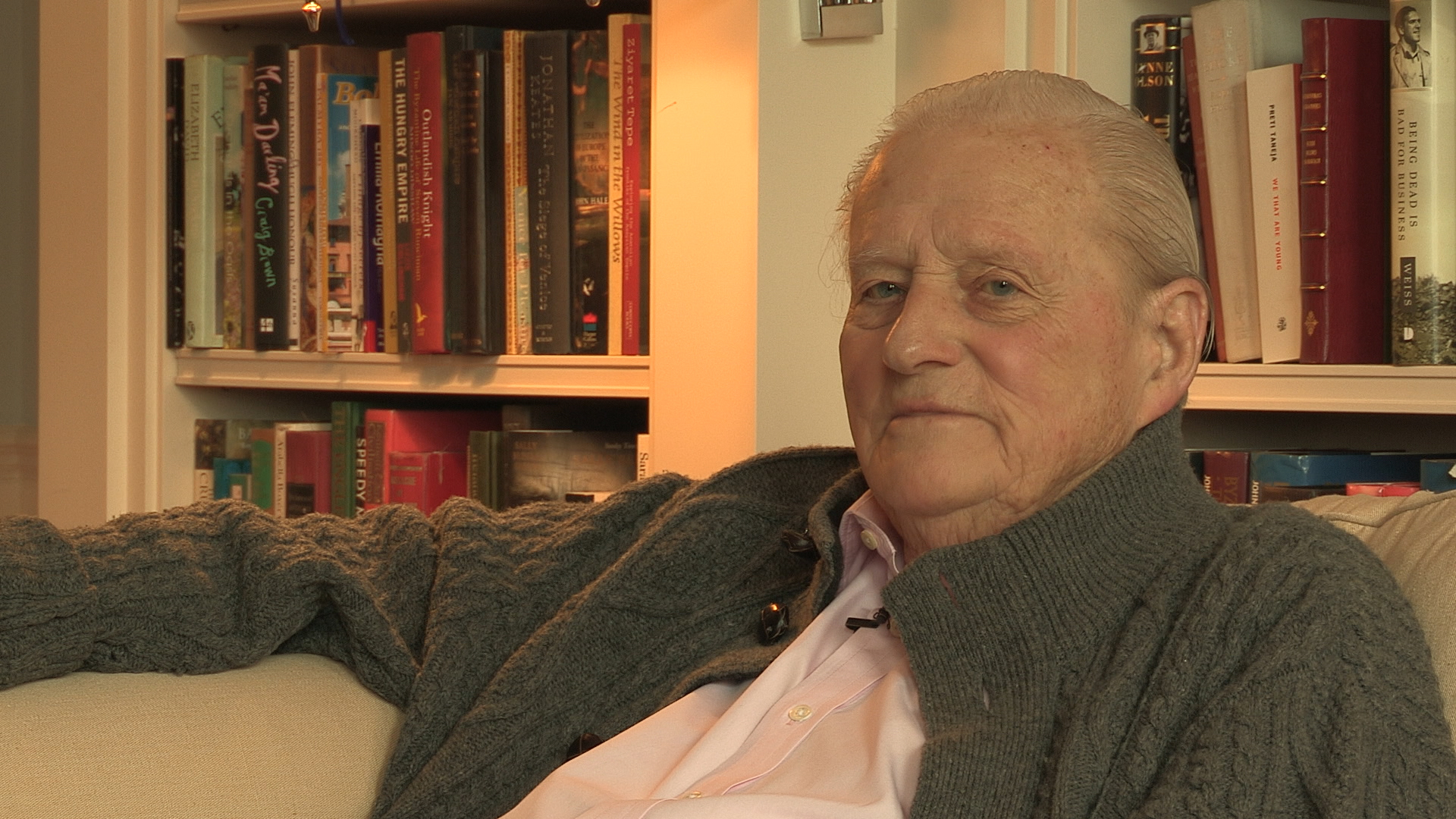NEXT STORY

Ordering egg and chips in Harry's Bar
RELATED STORIES

NEXT STORY

Ordering egg and chips in Harry's Bar
RELATED STORIES


|
Views | Duration | |
|---|---|---|---|
| 111. Filming in Sicily | 52 | 02:22 | |
| 112. Pulling rank | 44 | 02:16 | |
| 113. Making documentaries for the BBC | 41 | 03:06 | |
| 114. Napoleon's Waterloo 'victory' | 60 | 03:22 | |
| 115. Ordering egg and chips in Harry's Bar | 54 | 02:54 | |
| 116. A sudden change of destination | 38 | 01:46 | |
| 117. Acrobatic cameramen | 39 | 03:54 | |
| 118. Under a spell | 38 | 03:26 | |
| 119. My Word trumps my words | 46 | 01:41 | |
| 120. Round Britain Quiz | 43 | 01:55 |


We ended up in Waterloo, of course, and about six months before that – I'd never been to Waterloo – about, no, I think more like two or three months before we were actually going to go and do the shooting, I was... at that time I was a Liberal member of the House of Lords and I was on a... I used to go to meetings of things like the Council of Europe and Western European Union and things like that in Strasbourg or Luxembourg or Brussels or somewhere. I did that several times and we were in Brussels and doing a thing about military strategy, about which I knew absolutely nothing. I knew I couldn't make any useful contribution at all, so I took the afternoon off, together with three other delegates; we were paired, two, well, they were one Labour and one Conservative and two… two Labours, one Conservative and me who was a Liberal, and we drove off to Waterloo. And it was a blazing hot summer day and we had a delicious lunch in Waterloo, and all around Waterloo, you get the very, very, very clear impression that Napoleon won, because there were pictures of Napoleon everywhere, hundreds of postcards, he's on all the plates, he's on all the glasses, he's everywhere. You never, never, never see a picture of the Duke of Wellington at all. And one got a very, very clear impression, you know, that Wellington really hardly mattered. I did actually find one postcard of him saying that he'd distinguished himself in India, but not mentioning Waterloo. And I remember, I think we must have got rather drunk, because the Belgians were terrible drivers in those days because it was the only country in Europe that didn't demand driving licences or if it did, I mean, you could get them at 15 or something like that. And they were all... it was a hot summer evening and they were all driving back, probably most of them plastered, and they were... I mean, I've never been so frightened by so many cars, and I remember leaning out of the window and shaking my fist and shouting, 'We won!' on the way home.
And then what else... what other films did we make? We made several in Venice about, I was by this time very much involved in keeping Venice or trying to save Venice from all the problems it has, and we made, I think, three films there, one about it and one about the measures which were being taken to preserve it, and then we did another one 10 years later seeing to what extent those measures had worked.
John Julius Norwich (1929-2018) was an English popular historian, travel writer and television personality. He was educated at Upper Canada College, Toronto, at Eton, at the University of Strasbourg and on the lower deck of the Royal Navy before taking a degree in French and Russian at New College, Oxford. He then spent twelve years in H.M. Foreign Service, with posts at the Embassies in Belgrade and Beirut and at the Disarmament Conference in Geneva. In 1964 he resigned to become a writer. He is the author of histories of Norman Sicily, the Republic of Venice, the Byzantine Empire and, most recently, 'The Popes: A History'. He also wrote on architecture, music and the history plays of Shakespeare, and presented some thirty historical documentaries on BBC Television.
Title: Napoleon's Waterloo 'victory'
Listeners: Christopher Sykes
Christopher Sykes is an independent documentary producer who has made a number of films about science and scientists for BBC TV, Channel Four, and PBS.
Tags: Napoleon Bonaparte, Duke of Wellington
Duration: 3 minutes, 22 seconds
Date story recorded: 2017
Date story went live: 03 October 2018